Negative gearing is a term that is used to describe a situation where the costs of owning an investment, such as a rental property, are greater than the income it generates. When this happens, the investor is said to be “negatively geared.” This can occur when the rental income from the property is not sufficient to cover the mortgage payments, property taxes, insurance, and other expenses associated with owning the property. In this case, the investor may need to use their own money to make up the difference.
In Australia, negative gearing is a popular investment strategy, particularly for property investors. It is often used as a way to reduce the tax burden for high-income earners, as losses on negatively geared investments can be used to offset other taxable income. However, it is important to note that negative gearing can be risky, as it relies on the property increasing in value over time in order to eventually generate a profit.
How does depreciation help with a negative gearing strategy?
Depreciation is an accounting concept that refers to the reduction in the value of an asset over time due to wear and tear, obsolescence, or other factors. In the case of rental property, the value of the building and any improvements (such as a new roof or kitchen) can be depreciated over a period of time.
In the context of negative gearing, depreciation can help reduce the overall costs of owning a rental property by allowing the investor to claim a tax deduction for the portion of the property’s value that has been depreciated. For example, if a property is worth $500,000 and the investor claims a depreciation deduction of $50,000 per year for 10 years, this would reduce the investor’s taxable income by $50,000 per year.
By claiming depreciation deductions, an investor may be able to reduce the overall loss on a negatively geared property, potentially making it more financially viable in the long term. However, it’s important to note that the investor will not receive any actual cash back from the government as a result of claiming these deductions. The investor will simply pay less tax on their other income.
Example:
Let’s say that an investor purchases a rental property for $500,000. The investor takes out a mortgage for $400,000, and the property generates $20,000 per year in rental income. The investor also has expenses of $30,000 per year, including the mortgage payment, property taxes, insurance, and other costs.
Without depreciation, the investor would have a net loss of $10,000 per year ($30,000 in expenses minus $20,000 in rental income). However, let’s say that the investor is able to claim $10,000 per year in depreciation deductions. This would reduce the investor’s taxable income by $10,000, resulting in a net loss of only $5,000 per year ($30,000 in expenses minus $20,000 in rental income and minus $10,000 in depreciation deductions).
While the property is still negatively geared in this example, the investor is able to use the depreciation deductions to offset some of the loss and reduce the overall financial burden. It’s important to note that this is just an example and the actual tax benefits of negative gearing and depreciation will depend on the specific circumstances of the investment.
What happens if I am positively geared?
If an investment is “positively geared,” it means that the income it generates is greater than the costs of owning it. In the case of a rental property, this would mean that the rental income is sufficient to cover the mortgage payments, property taxes, insurance, and other expenses associated with owning the property. In this situation, the investor would be generating a profit on the property, rather than a loss.
If an investment is positively geared, the investor will not be able to claim any tax deductions for losses on the investment. However, the investor will still be required to pay tax on the profit generated by the investment, just as they would with any other source of income.
It’s worth noting that positively geared investments can still be risky, as the value of the investment could go down over time or the income could decrease for various reasons. However, they may be considered a less risky option than negatively geared investments, which rely on the value of the investment increasing in order to eventually generate a profit.
Should I get a Depreciation Report?
A depreciation schedule can potentially help reduce your taxable income if you own a rental property or other investment that is eligible for depreciation deductions. A depreciation schedule is a list of the assets included in an investment, along with the estimated useful life of each asset and the amount of depreciation that can be claimed each year. Simply click here to have a quick look at our packages.


